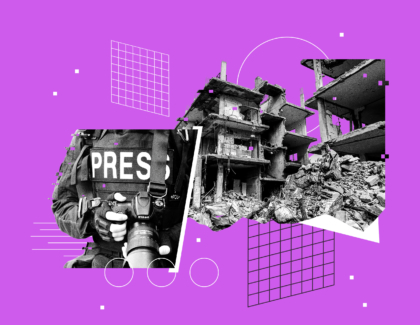Sign up for the daily CJR newsletter.
The Iraq War Logs don’t seem to have hit here as hard as their much smaller predecessor—WikiLeaks fatigue? Friday afternoon release? Midterm eclipse? But there is some smart stuff out there on the leaks.
One of the toughest, smartest assessments comes, unsurprisingly, from Robert Fisk, the Middle East correspondent for Britain’s Independent. On Sunday he penned a column titled “The shaming of America,” the tenor and substance of which you’d be hard-pressed to ever find in a U.S paper.
It’s an angry run-through of the new documents’ revelations, and a pretty brutal condemnation of the U.S. military and world press for not more aggressively exposing them before now. But perhaps the most interesting section is where Fisk asks a question about WikiLeaks’s implications for the future of journalism.
But I do suspect this massive hoard of material from the Iraq war has serious implications for journalists as well as armies. What is the future of the Seymour Hershes and the old-style investigative journalism that The Sunday Times used to practise? What is the point of sending teams of reporters to examine war crimes and meet military “deep throats”, if almost half a million secret military documents are going to float up in front of you on a screen?
It’s an interesting question, and not so easy to answer. No doubt there will be a temptation—much the same one that came with the Internet—for organizations to assign reporters to cover war through easily and cheaply available material like these leaks, especially if they become more frequent.
But there is a very important reason to send teams of reporters out into the fields of war: journalism cannot be passive. Waiting for a new trove of documents to be leaked, or relying solely on its leaked documents for reporting, would allow WikiLeaks to take on an editorial role, selecting what gets published and what makes news; at minimum selecting from what information news would be gathered.
Journalists fight against government attempts to do that as a matter of routine, and they should be skeptical of WikiLeaks, as well. And, as much of Friday’s reporting revealed—the best of which included context and reporting added by correspondents—the WikiLeaks documents are snapshots, rough sketches, and first reports that demand fleshing out by those who are well-versed in the war from which they sprang.
Rather than suggest a worrying future for investigative, on-the-ground reporting, WikiLeaks shows that it’s as important as ever.
Has America ever needed a media defender more than now? Help us by joining CJR today.






